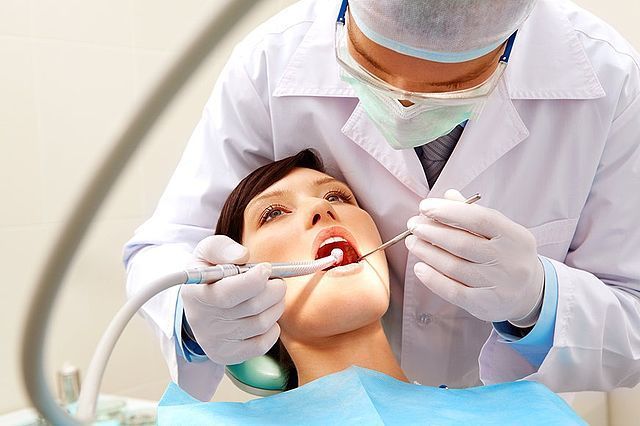How Your Dentist Can Help You Get A Better Sleep
03/17/2017 01:25 pm ET | Updated Mar 17, 2017 | HuffingtonPost.com
 Are you zoning out at work? Having trouble concentrating? Are you waking up frequently with a pounding headache? Do you often get sleepy – or even fall asleep – when you shouldn’t, like when you’re driving?
Are you zoning out at work? Having trouble concentrating? Are you waking up frequently with a pounding headache? Do you often get sleepy – or even fall asleep – when you shouldn’t, like when you’re driving?
Tell your dentist!
Dentists are concerned with more than just your pearly whites. We’re here to help you with your overall health and well-being too! More and more evidence is coming out to show that sleep deprivation – a condition that can result in all the symptoms listed at the top of this post – is at the root of a large number of every day conditions. Fortunately, treating sleep deprivation is something most dentists are willing and able to do.
Your Dentist Can Help You Sleep
Your dentist can help you out with your sleep in a big way – doing so starts right when you “open wide” at your dental appointment. Your mouth, neck and jaw can display telltale signs that point to the quality of sleep you are getting. For instance, worn-down enamel can be a sign of stress or anxiety that causes a person to grind their teeth at night. The shape of your jaw may also signify to your dentist that you are at risk for sleep apnea (also known as obstructive sleep apnea or OSA).
Specifically, when it comes to sleep disordered breathing, like snoring or OSA, most dentists are in the know. Besides having a look at the shape and positioning of your jaw, dentists can perform an exam to assess the if your compromised sleep is related to sleep apnea or snoring. This assessment should include a conversation to talk about your general well-being as of late. Are you feeling groggy throughout the day? Do you ever wake up with a sore throat or dry mouth? Do you experience insomnia? A candid conversation that covers questions like these may alert your dentist to subtler, non-physical signs of sleep disordered breathing.
If your dentist suspects you have a sleep disorder, they’ll refer you to a sleep physician to get tested. This might involve having a physical exam performed by the physician or undergoing a polysomnography test – also known as a sleep study – to measure such markers like your blood oxygen level, heart rate and breathing while you sleep. Once you are diagnosed as having sleep disordered breathing, you can check back in with your dentist and discuss the next steps in your journey to a better night’s sleep.
Sleep Apnea: The Dentist’s Way Forward
Although it may not be widely known, many dentists are specially trained to treat and manage sleep apnea. Dentists can help you with your sleep quality from fitting you for a mandibular advancement device – an oral appliance that looks similar to a sports mouth guard and opens up your airway while you sleep – to suggesting lifestyle changes you can make, such as consuming a low fat diet or refraining from computer screens right before bed, that lend themselves to more restful nights.
Specifically, dentists are pros on helping you with alternative treatment options to continuous positive airway pressure (CPAP) machines, which are considered to be the “gold standard” of sleep apnea treatment. Unfortunately, for many with sleep apnea, CPAPs are not a comfortable or even viable option. They have low compliance and adherence rates, especially for sleep apnea sufferers who are not obese. For those with Mild to Moderate OSA (or for people who have been diagnosed with “Severe” OSA, but cannot tolerate CPAP), there are other treatment options that dentists can especially help out with.
The field of Dental Sleep Medicine is dedicated to the practice of fitting oral appliances for sleep apnea treatment. Many dentists are specially trained in this area- and, if you are diagnosed with sleep apnea, there are a lot of reasons to ask your dentist if he or she is. Worn at night to improve ventilation during sleep, oral appliance are portable, subtle, don’t require a power source and many patients feel that they are a whole lot more comfortable than CPAP.
If you think you might be suffering from sleep disordered breathing, bring it up with your dentist next time you go for a check-up. They’ll be sure to put you on the path for a better sleep.




